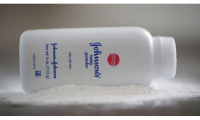-
Johnson & Johnson Seeks Approval for Darzalex Faspro Combo in Newly Diagnosed Multiple Myeloma
- Source: drugdu
- 129
- February 2, 2024
-
//www.fiercepharma.com/pharma/johnson-johnson-settles-talc-consumer-protection-claims-42-states-700m
- Source: drugdu
- 84
- January 25, 2024
-
Johnson & Johnson inks $700M deal to resolve talc consumer protection claims from 42 states
- Source: drugdu
- 188
- January 25, 2024
-
Who is Tim Schmid, Johnson & Johnson MedTech’s new leader?
- Source: drugdu
- 144
- October 27, 2023
-
After launch limitations, Johnson & Johnson exec touts manufacturing progress on CAR-T drug Carvykti
- Source: drugdu
- 110
- October 20, 2023
-
Johnson & Johnson slashes price of tuberculosis drug Sirturo after relinquishing patent protections
- Source: drugdu
- 165
- September 4, 2023
-
Chasing AstraZeneca and Pfizer, Johnson & Johnson snags FDA nod for prostate cancer combo Akeega
- Source: drugdu
- 118
- August 16, 2023
-
Johnson & Johnson to Reduce Its Kenvue Stake by at Least 80% Through Exchange Offer
- Source: drugdu
- 124
- July 26, 2023
-
Johnson & Johnson Becomes 4th Drugmaker to File Suit Against IRA’s Drug Price Negotiations
- Source: drugdu
- 279
- July 20, 2023
-
In Talc Defense, Johnson & Johnson Sues 4 doctors Over Their ‘Junk Litigation Opinions’
- Source: drugdu
- 108
- July 18, 2023
your submission has already been received.
OK
Subscribe
Please enter a valid Email address!
Submit
The most relevant industry news & insight will be sent to you every two weeks.













